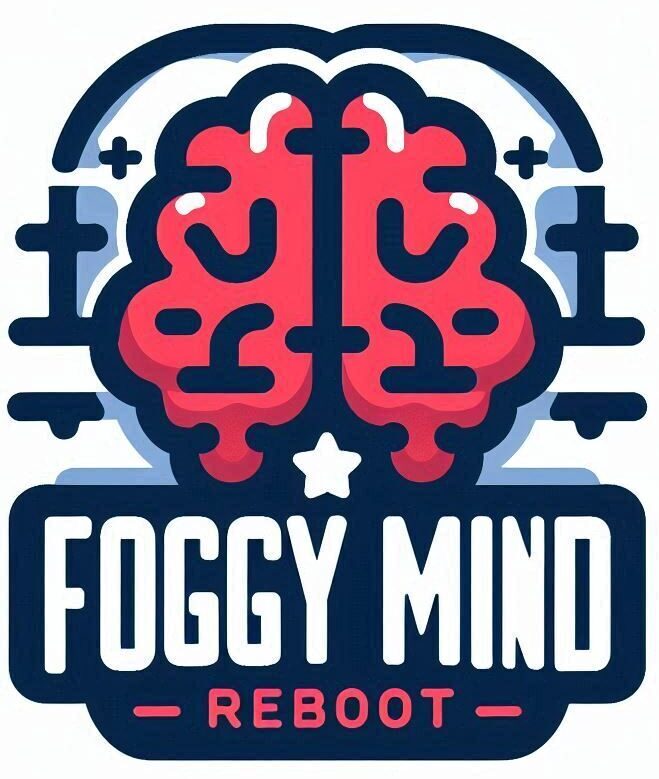How Nutritional Deficiencies Cause Brain Fog (And How to Fix It)

Have you ever felt like your brain was in a haze, making it tough to focus or remember simple things? You’re not alone. Brain fog isn’t just a temporary annoyance—it’s often a sign that something in your body is out of balance. One of the most common culprits is nutritional deficiencies. The good news? A few tweaks to your diet can help clear the fog and improve your mental clarity.
What is Brain Fog?
Brain fog is not a medical condition but a collection of symptoms like confusion, forgetfulness, and difficulty concentrating. If you’ve ever found yourself unable to focus, or struggling to find the right words during a conversation, you’ve experienced brain fog. It can be frustrating and interfere with your productivity and mood.
How Nutritional Deficiencies Affect Brain Health
Your brain requires specific nutrients to function properly. When you don’t get enough of these nutrients, you might notice mental sluggishness, mood swings, or forgetfulness. The most common nutritional deficiencies that lead to brain fog include Vitamin B12, Vitamin D, iron, and omega-3 fatty acids.
Key Nutrients for Optimal Brain Function
Here’s a breakdown of the nutrients that play an essential role in maintaining brain health:
- Vitamin B12
- Why It’s Important: Vitamin B12 is essential for nerve function and brain health. A deficiency can result in fatigue, confusion, and memory problems.
- Symptoms of Deficiency: Sluggishness, forgetfulness, mood swings.
- Sources: Meat, dairy products, eggs, and fortified cereals.
- Vitamin D
- Why It’s Important: Vitamin D helps regulate mood and cognitive function. Low levels can contribute to feelings of sadness and brain fog.
- Symptoms of Deficiency: Feeling down, lack of focus, cognitive decline.
- Sources: Sunlight, fatty fish (like salmon), fortified milk, and supplements.
- Iron
- Why It’s Important: Iron helps deliver oxygen to your brain, and without enough, you may feel tired and mentally sluggish.
- Symptoms of Deficiency: Fatigue, poor concentration, lightheadedness.
- Sources: Red meat, spinach, lentils, and iron-fortified grains.
- Omega-3 Fatty Acids
- Why It’s Important: Omega-3s help maintain the flexibility of brain cell membranes and improve communication between brain cells. They are also linked to lower risks of depression and cognitive decline.
- Symptoms of Deficiency: Mood swings, memory problems, cognitive decline.
- Sources: Fatty fish (like salmon and sardines), flaxseeds, chia seeds, walnuts.
Scientific Backing for Nutrients and Brain Health

Several studies have shown the link between nutrient deficiencies and cognitive issues. For instance, research published in the Journal of Neurology found that Vitamin B12 deficiency could result in cognitive impairment and memory loss. Similarly, low levels of Vitamin D are associated with an increased risk of mood disorders and cognitive decline, as noted in a study from The American Journal of Geriatric Psychiatry.
Symptoms and Causes of Brain Fog Due to Nutritional Deficiencies
Brain fog can feel like a mental cloud that makes it hard to think clearly or concentrate. Common symptoms include:
- Difficulty focusing
- Short-term memory lapses
- Mental confusion
- Trouble finding the right words during conversation
Several nutritional deficiencies are often at the root of brain fog. For example:
- Low iron leads to fatigue and difficulty concentrating due to reduced oxygen flow to the brain.
- Vitamin B12 deficiency causes confusion, mood swings, and forgetfulness.
- Lack of Vitamin D contributes to cognitive decline, mood imbalances, and overall fogginess.
An unbalanced diet—heavy in processed foods and low in essential nutrients—is a major factor in these deficiencies. Additionally, certain medical conditions or medications can interfere with the absorption of nutrients, making it harder to maintain proper levels.
Strategies to Combat Nutritional Deficiencies and Brain Fog
Improving your diet is the first step in combating brain fog. Here’s how you can start nourishing your brain for optimal performance:
- Eat a Nutrient-Dense Diet
- Fill your plate with a variety of colorful fruits and vegetables, lean proteins, and whole grains. Nutrient-rich foods like leafy greens, berries, nuts, and seeds help boost brain health. Omega-3-rich foods like salmon, flaxseeds, and walnuts are excellent for keeping brain cells functioning well.
- Example Meal: Grilled salmon with quinoa and a spinach salad topped with walnuts.
- Supplement Wisely
- If it’s difficult to get all the nutrients you need from food, supplements can help fill the gaps. Consider adding a high-quality multivitamin or specific supplements like Vitamin B12, Vitamin D, and iron to your routine. Always consult a healthcare provider before starting any new supplements.
- Supplements to Consider: Omega-3 capsules, B12 tablets, Vitamin D3.
- Hydrate for Mental Clarity
- Your brain is about 75% water, so dehydration can quickly lead to cognitive decline. Make it a point to drink plenty of water throughout the day to keep your mind sharp.
- Hydration Tip: Aim for 8 glasses of water daily. You can also stay hydrated with herbal teas and water-rich fruits like cucumbers and watermelon.
- Prioritize Sleep and Stress Management
- Your brain needs sleep to clear out toxins and consolidate memories. Aim for 7-8 hours of quality sleep each night. In addition, chronic stress can worsen brain fog, so incorporating stress-relief practices like meditation, yoga, or deep breathing exercises can help.
- Stress Management Tip: Practice mindfulness or take 10-minute breaks throughout the day to reduce mental fatigue.
- Exercise Regularly
- Physical activity boosts blood flow to the brain and improves focus and mood. Even a daily walk can help enhance mental clarity and reduce brain fog.
- Exercise Tip: Aim for at least 30 minutes of moderate exercise most days of the week.
Recognizing and Addressing Nutritional Deficiencies
If you frequently experience brain fog, it may be worth checking for nutritional deficiencies. A simple blood test can help determine if you’re low on key nutrients like Vitamin B12, iron, or Vitamin D. Early detection allows you to adjust your diet or take supplements to restore balance and improve cognitive function.
Conclusion: Take Control of Brain Fog with Balanced Nutrition
Brain fog doesn’t have to slow you down. By paying attention to what you eat and addressing potential nutrient deficiencies, you can sharpen your focus, improve memory, and boost overall brain health. Remember, a balanced diet rich in essential vitamins, minerals, and healthy fats is key to maintaining mental clarity. Your brain is your most valuable asset—fuel it well!
Sources:
- Harvard Health Publishing. “The Effects of Vitamin Deficiencies on Cognitive Health.” Harvard Medical School.
- Smith, P.J., et al. “Vitamin D and Cognitive Health in Older Adults.” The American Journal of Geriatric Psychiatry, vol. 24, no. 8, 2016.
- Johnson, E.J., et al. “The Role of Omega-3 Fatty Acids in Cognitive Function.” Nutrition Research, vol. 31, no. 3, 2011.
Click here for “Complete Support For Healthy Memory, Concentration And Mental Acuity”
Here’s a little transparency: Our website contains affiliate links. This means if you click and make a purchase, we may receive a small commission. Don’t worry, there’s no extra cost to you. It’s a simple way you can support our mission to bring you quality content.”

